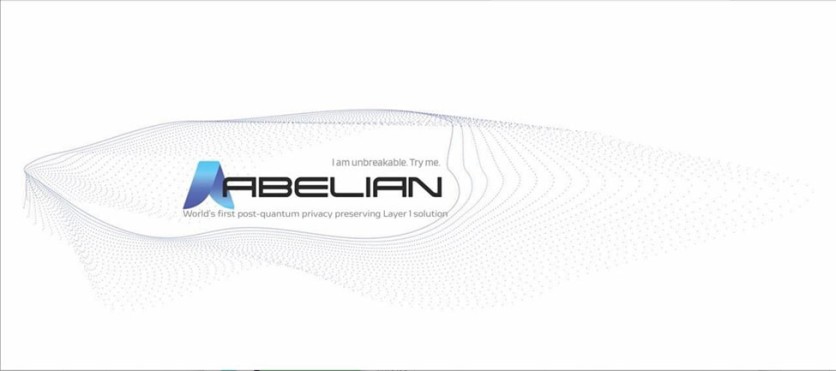
The cryptocurrency market is anxiously watching the development of quantum computing, as quantum machines can solve certain mathematical problems a billion times faster than today's computers.
All the encryption protocols used by the internet as we know it today can potentially be broken by a working quantum computer. While it would take a conventional computer millions of years to decipher the cryptographic keys that protect most online communications, a full-scale quantum computer could compromise internet-based financial transactions and popular text-messaging platforms in less than a day.
Working at Bell Labs in New Jersey, a mathematician named Peter Shor proved that some of the most widely used encryption standards can be cracked with the aid of a quantum computer. Even before his results were published, he was contacted by a concerned employee of America's National Security Agency, who later wrote, "Such a decryption ability could render the military capabilities of the loser almost irrelevant, and its economy overturned."
This is one of the reasons the US Department of Commerce's National Institute of Standards and Technology (NIST) has launched an initiative to develop post-quantum security standards, calling for specialists to submit quantum-resistant public-key algorithms for evaluation, warning:
"If large-scale quantum computers are ever built, they will be able to break many of the public-key cryptosystems currently in use. This would seriously compromise the confidentiality and integrity of digital communications on the Internet and elsewhere... Therefore, regardless of whether we can estimate the exact time of the arrival of the quantum computing era, we must begin now to prepare our information security systems to be able to resist quantum computing."
Given the capabilities of today's quantum computers, this arrival time may still appear to be quite a way off in the future. However, quantum computing technology is progressing very rapidly.
In 2019, Google and IBM, independently, built 53-qubit quantum computers. Just two years later, a Boston startup called QuEra built a 256-qubit quantum computer, and this year IBM announced that they will complete a 1,000-qubit computer next year. Moreover, PsiQuantum has already raised $215 million to build a quantum computer with 1,000,000 qubits.
Unfortunately, decentralized networks are also included in the list of potential victims, as a quantum computer could break at least one basic cryptographic primitive backing most existing blockchains (i.e., the digital signature scheme). Everyone fears that quantum computers will easily hack blockchains, including Bitcoin's. This means that all digital assets are at risk.
And although blockchain technology has historically been used primarily in cryptocurrency applications, a host of other market segments that have begun to harness the power of decentralized leger technology could also fall victim to future quantum computer attacks.
These include:
- Financial Services, which use blockchain technology to dramatically reduce the time needed to clear and settle the trading or exchange of financial assets.
- Identity Management Services, which use blockchain technology to support distributed identity management services.
- Healthcare, which uses blockchain technology to secure patient records, audit healthcare transactions, and prevent the flow of fraudulent prescription drugs.
• Smart Homes and IoT, which use blockchain to ensure that devices within a home environment can be remotely controlled in a secure manner.
- Supply Chain and Logistic Services, which use blockchain-powered devices to track shipments making their way through complex supply chains, while automating tasks along the way.
- The Automotive Industry, which is evaluating blockchain technology's potential for supporting autonomous cars, automated fuel payments, smart parking, and automated traffic controls.
Given today's rapidly expanding use of decentralized ledger technology in all spheres of business and finance, it is clear that it is crucial to build a blockchain that is resistant to quantum attacks.
A group of cryptographers and mathematicians from a Singapore-based project called Abelian has already taken on this difficult task by creating the world's first L1 post-quantum blockchain, along with its own privacy preserving cryptocurrency.
Abelian's core cryptographic systems make use of lattice-based technology and are provably secure in strong security models that capture most of the attacks that could be feasibly launched with a quantum computer. Lattice-based cryptographic constructions are the leading candidates for post-quantum public-key cryptography, representing three of the four finalists in NIST's PQcrypto standardization project.
Abelian has already established a strategic partnership with Draper Dragon, a cross-border venture fund that looks for early-stage companies capable of disrupting their industry landscape, and the project is expanding rapidly.
The mainnet for Abelian's cryptocurrency, ABEL, was launched in March of 2022 with four nodes. By July, it had expanded to 400 full nodes, with miners from all over the world. The number of mining sites had increased to 3,000 as of October, with miners continuously adding more computational power to Abelian's mainnet, and mining difficulty doubling every 10 days.
In the near future, Abelian plans to introduce an EVM-equivalent L2 chain for smart contract support. This will allow Web3 and DeFi applications running on EVM chains, which are vulnerable to quantum attacks, to be seamlessly brought over to Abelian's L2 chain. Built using COSMOS, Abelian's L2 chain will have a zero-knowledge bridge that connects the two layers, empowering L2 Dapps to be quantum-resistant, as well as highly scalable and extendable.
By 2023, all of the project's source code will be made fully open source, as the project aims to build an open community that can continuously improve Abelian's security, scalability, and decentralization, while promoting the growth of the Abelian ecosystem.
By launching the first quantum-resistant blockchain and cryptocurrency, Abelian has established itself as a groundbreaker in ushering in a new era for decentralized leger technology.




![Most Useful Google Chrome Keyboard Shortcuts You Need to Know to Improve Your Browsing Experience [2024]](https://d.techtimes.com/en/full/449047/most-useful-google-chrome-keyboard-shortcuts-you-need-know-improve-your-browsing-experience-2024.jpg?w=184&h=103&f=476d29fd60df70a67f6679f99a2ca6d0)